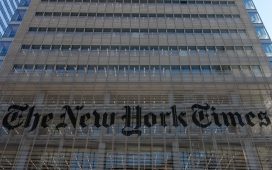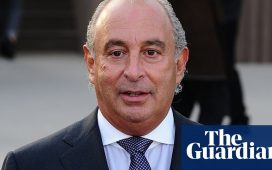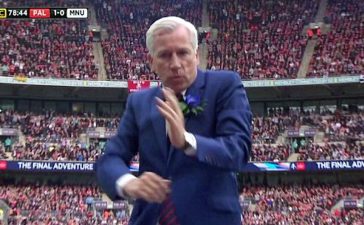Stay informed with free updates
Simply sign up to the Media myFT Digest — delivered directly to your inbox.
GB News is seeking to use the courts to stop regulator Ofcom from being able to carry out sanctions over breaches of the UK broadcasting code by the media group.
The UK broadcaster, which is part-owned by hedge fund boss Paul Marshall, has applied to the High Court for “interim relief” to prevent Ofcom from taking steps in sanction proceedings.
The move is highly unusual in an ongoing and public sanctions process. Ofcom has rarely faced attempted injunctions, according to one person with knowledge of the situation.
Details of the timing of the court case — which will be heard in the High Court in London on Thursday morning — were published on Wednesday afternoon.
GB News was in May found to have failed to preserve due impartiality in a live TV debate with then-prime minister Rishi Sunak — a breach that Ofcom said was “serious and repeated” and that would lead it to consider the imposition of a statutory sanction.
Ofcom received more than 500 complaints about the programme, including claims that it lacked due impartiality.
Ofcom has opened 19 investigations against the channel, and found it in breach 12 times.
The regulator’s chief Melanie Dawes told the FT this week that it was now “moving to sanctions on the most recent of those breaches”, given the build-up of code breaches in coverage by the UK broadcaster. However, no decision has yet been made to sanction the broadcaster.
Sanctions could typically start with a fine, Dawes said. Ofcom has been criticised by some media commentators as being toothless in the face of the repeated breaches of broadcasting rules by GB News, which have so far resulted in little more than stern warnings.
Ofcom is contesting arguments by GB News that the regulator acted unlawfully by commencing and then making public its investigation, according to a person close to the matter. This would stop the UK media regulator from reaching a final decision on the imposition of sanctions.
Central to the argument appears to be whether Sir Keir Starmer had agreed or was expected to agree to participate in a similar programme — which would indicate impartiality — and whether Ofcom’s move frustrated GB News’ efforts.
Ofcom claims that it is not arguable that it acted unlawfully by starting the investigation in public, and contends that GB News failed to schedule any linked and timely programme that might achieve the necessary impartiality.
The channel’s court application also asks that the judge grant confidentiality regarding certain correspondence relevant to the case. GB News declined to comment.
At the time of the Ofcom decision, GB News objected to the ruling and said the “threat to punish a news organisation with sanctions for enabling people to challenge their own prime minister strikes at the heart of democracy at a time when it could not be more vital”.
Ofcom declined to comment.










